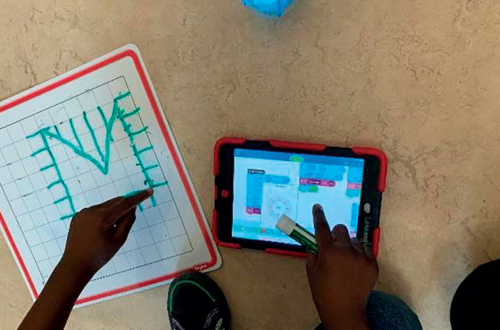Journal of the Mathematics Council of the Alberta Teachers’ Association
Volume 35 Issue 2, May 1998
With the 1997 MCATA annual conference behind us, we tum our attention to another major professional development event–the Canadian Regional MCATA/NCTM Conference that will be held in Calgary, October 23—24, 1998.
All annual conferences organized by MCATA, while appearing to be major single events, are not intended to be one-shot deals. The purpose is to explore topics that are timely as well as on the cutting edge of mathematics reform. These conferences are also about sharing and networking with others from within and outside the province. They provide an excellent springboard for further professional development at school, district and regional levels.
We have produced excellent mathematics programs in this province-the Western Canadian Protocol is one example——however, unless teachers are helped to use the program and materials effectively, the efforts of these excellent programs will not be felt in classrooms. Realizing the massive nature of implementing a new program, there is a need to explore better ways to make staff development continuous, focused and effective. This calls for our unqualified commitment to and support of teachers to overcome the obstacles of lack of time and resources. Teachers need opportunities to meet with others so that they can talk about the context of the new program, not just the content, as well as the delivery systems that are most appropriate and models for effective staff development. Many models of professional development are in use; among these are numerous self-help activities related to the use of professional journals, videotapes, critical reviews (with or without colleagues), CD-RO Ms, the Internet, technology–to name a few. All require an investment of time.
However, the point is that if the implementation of a new program is important, and if it is to have a positive effect on the learners, then teachers must be able to engage in continuous, focused and effective professional development activities.
I hope that the articles contained in this issue are not just interesting, challenging and useful within your own classroom-although this is an important and major goal for me as editor-but that each issue of delta-K also contributes to your professional development. As much as you may benefit from the contributions made by each author, I hope that you, too, will find the time to share your ideas of teaching and learning with our readers. Your ideas and those of your students are needed and very important.
Klaus Puhlmann
1 – 3
4
Klaus Puhlmann
5
Florence Glanfield
6 – 11
Marge Marika
12 – 14
1997 Outstanding Mathematics Educator Awards
Lynwen Hart & Donna Chanasyk
15
16
The Importance of Numeracy in a Technological Society
Murray Lauber
17 – 18
Thinking About Making Connections in Mathematics: One Student Teacher’s Story
Connie Williams
19 – 20
Marjorie Gann
21 – 22
The Physics of a Classical Guitar
Ryan Cassidy
23
Mary Chan
24 – 31
Promoting Mathematics Connections with Concept Mapping
Bobbye Hoffman Bartels
32 – 35
Building Mathematical Models of Simple Harmonic and Damped Motion
Thomas Edwards
36 – 38
Making Connections Using Embedded Software
Claire Groden and Laurie Pattison-Gordon
39 – 40
The Use of Technology in the Learning and Teaching of Mathematics, Position Paper
National Council of Teachers of Mathematics
41 – 49
A Collection of Connections for Junior High Western Canadian Protocol Mathematics
Sol E. Sigurdson, Thomas E. Kieren, Terri-Lynn McLeod and Brenda Healing
50 – 51
Arthur Jorgensen
52 – 59
Math Projects for Science Fairs
Katherine Heinrich
60
Probability: A Study of Chance
Shirley LeMoine
61 – 62
Cheryl Matern
63 – 65
A Chocolate Candy Color Distribution: An Enumerative Statistical Experiment
Bonnie H. Litwiller and David R. Duncan
66 – 70
Alternative Instruction and Alternative, Performance-Based Assessment: An Annotated Bibliography
Jane Ehrenfeld
71



